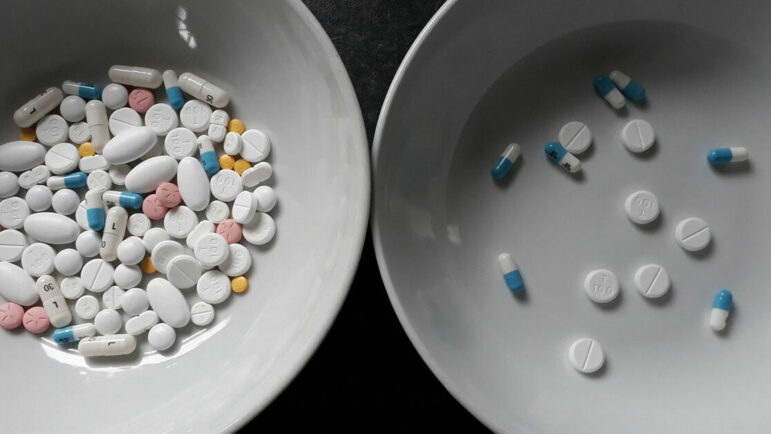The Lown Institute’s recent report, Medication Overload: America’s Other Drug Problem, highlights the harm to older Americans from the increasing use of multiple medications. Over the past several months, the Lown Institute has convened working groups of patients, doctors, nurses, advocates, researchers, and pharmacists to develop a “National Action Plan for Addressing Medication Overload,” which will be published in early 2020.
In this new blog series, Deprescribing Champions, we are highlighting some of these working group members, who are role models for deprescribing, to show how they are making an impact at their institutions.
Our first profile is of Dr. Emily McDonald, Assistant Professor of Medicine at McGill University and an attending physician at the McGill University Health Centre. She is also a prolific researcher who has authored many studies on overuse, including authoring one of the EMPOWER studies of deprescribing sedative-hypnotics.
Lown Institute: How big an impact do you think institutional culture has on prescribing?
In the research that I’ve done on overuse, there is often huge variability in rates of testing, procedures, and prescribing depending on the physician on service. So having a physician who is dedicated to reducing overuse can make a difference.
The question that stems from this is, does the staff physician’s attitude influence the residents? If a trainee has a staff physician who orders fewer tests or who deprescribes more, does their own prescribing behavior?
Anecdotally, I think it makes a difference. When I come on service, my residents order fewer unnecessary blood tests and they do a medication review, because they know that I care about these things. Residents get to know the practice of the attending physician and they adapt. If you have leaders in any area of overuse, this has an influence on the junior prescribers.
How did you get interested in deprescribing in the first place?
It’s full circle. I am passionate about deprescribing because I had mentors who role modelled appropriate prescribing. I’m pretty sure that if I hadn’t worked with certain key attendings, I wouldn’t have developed such an interest in deprescribing.
That said, I must have a predisposition towards high-value care. When I was a resident I remember feeling uneasy when we were doing too much to the patient and not enough for the patient. And when I started doing this work I found it satisfying to avoid waste and optimize care.
What advice would you give for other attendings or leaders for how to promote a culture of deprescribing at their institution?
I would tell them that they shouldn’t underestimate the influence they might have on the junior learners. The way to spread deprescribing is by teaching. I can deprescribe for my own patients, but I’m only one person. The way to have the biggest impact is to teach other incoming physicians to do the same thing.
Do you see your own trainees get excited about deprescribing like you did? How does that make you feel?
Yes, I see it and it feels amazing. I was working with a resident the other day who didn’t know me. She said she was going to stop a patient’s sleeping pill and when I asked why she said, “because that’s what we do these days.” She wasn’t saying it because she knew it was what I wanted to hear, it was because deprescribing is starting to become a part of the training culture, and that’s so great to see.
